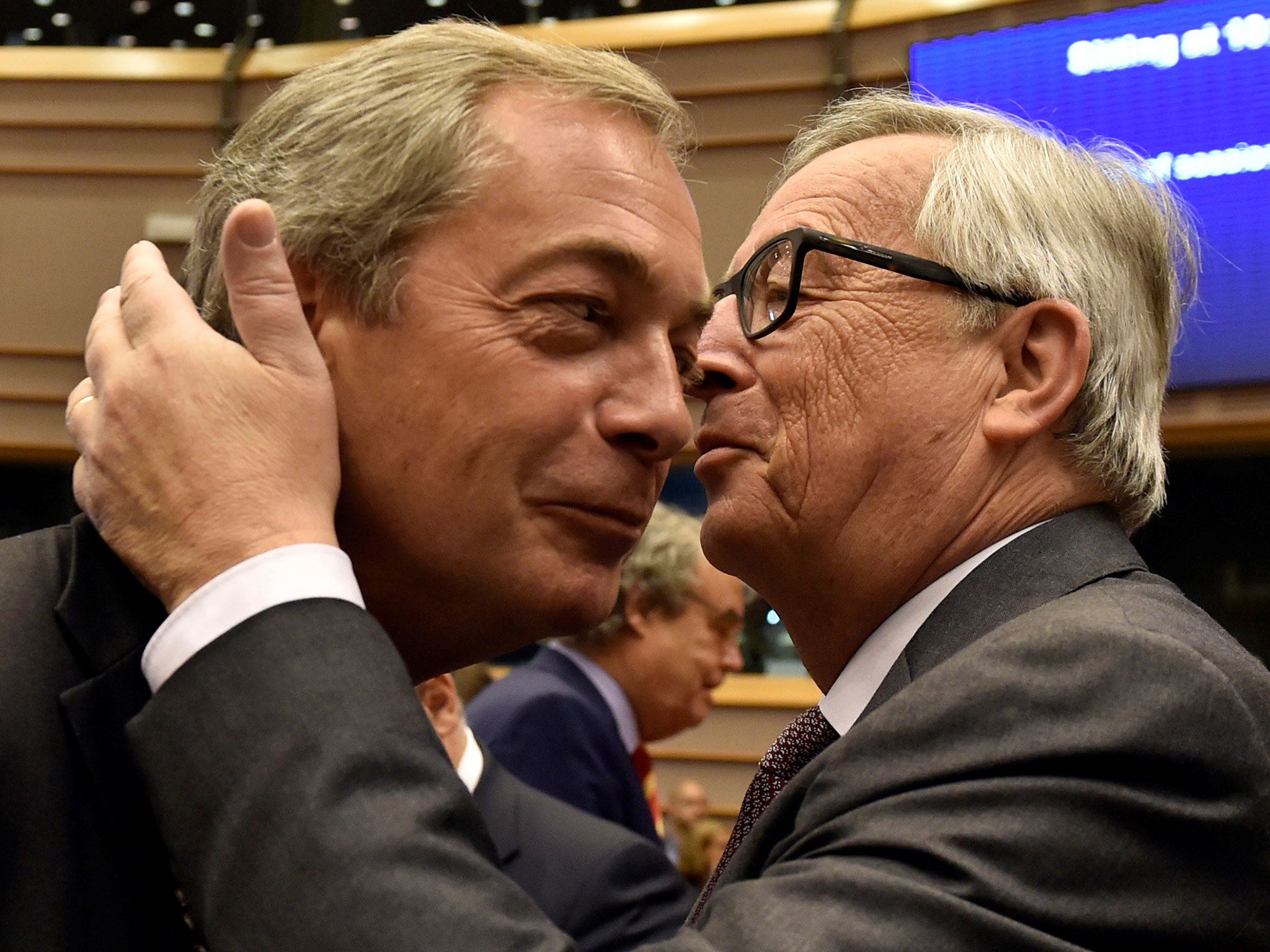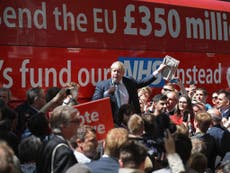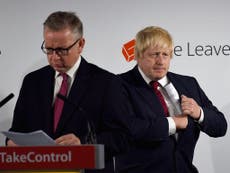Brexit won't happen in the end – here's why
I voted Leave – but, looking at the reasons, it's undeniable that we'll stay in the European Union after all


Even for an optimistic Brexiteer like me, the last few days have been difficult. Many people who voted out are already feeling a bit betrayed as certain fundamental truths sink in. The “uncertainty” is already affecting the real economy as we see. Project Fear probably understated some of the dangers, though overstated others absurdly, the latter as former Governor of the Bank of England Mervyn King has said (a calm voice in these frenetic times).
Before long this uncertainty will feed through even more concretely from the slightly abstract world of financial markets and exchange rates through to jobs, savings, and, above all, the value of people’s homes, which is where most people’s wealth is stored (especially some of the less well-off voters who opted for “Leave”). This is really why I suspect Brexit won’t, in the end, come to pass – because most voters can’t afford it in the short run, whatever the longer term advantages. Call it blackmail by the financiers or the Establishment if you wish, but it is a fairly nasty ransom note all the same. Here are the reasons, in some sort of logical order, why Brexit won’t happen:
Regret is high and numbers were low
The margin for Leave was pretty small, in reality, and so the mandate is weak. Most countries have a constitutional convention that big changes have to command a two-thirds vote in a legislature or referendum, and this was nowhere near it. In the early 1970s, when Ted Heath took us in (without a referendum), the phrase used by him was that he needed the “full-hearted consent” of the British people to take such a momentous decision. It probably wasn’t there in 1971-72, but it certainly isn’t there now. Some Brexiteers are suffering profound regret, and we may as well acknowledge that, such is the gravity of the situation. They do not want to wait the many years, perhaps decades it will take for Brexit to be the better option for them and their families (ironically it is the young who have time on their side to enjoy the post-Brexit future, but I won’t press that point).
Voters don't actually get to decide
We live in a democracy where Parliament is sovereign. That means that only Parliament can give effect to the will of the people. David Lammy's idea that Parliament can just ignore the referendum is going too far, but it is true that Parliament's job is to decide what to do next. So what shall we do next?
The EU has too much to lose
Whoever takes over from David Cameron will, as recent events show, be under intense pressure not to press the exit button and activate “Article 50”, which puts us more or less on the escalator out. He or she may well be tempted to go back to Brussels and ask for a better deal within the EU.
If they had any sense – and Angela Merkel does – the European leaders will see the danger of Brexit contagion and offer the British, and the wider Eurosceptic movement across Europe, something that recognises people’s concerns, meaning probably some brakes on migration. This, on top of what David Cameron managed to secure, could form the basis for a second referendum choice – Brexit or the “New Deal”. Of course the EU’s establishment should have given that to Mr Cameron in the first place, but, as they say, we are where we are. I notice this is basically the suggestion now being put about by Jeremy Hunt; it will gain a lot of support outside Ukip, I suspect.
Hardly any Tories want to leave - including Boris Johnson
It will be highly attractive for whoever does succeed David Cameron to be seen as the leader who at last settled the European issue to Britain's satisfaction for ever. Theresa May, after all, is a Remainer, albeit reluctant, so we see where her instincts lie. Boris Johnson, let us recall, also first advocated voting Leave as a way for Britain to go back and get a better deal in his earliest intervention in the campaign, just after he declared for Leave. I quote, then, from an article Boris wrote, published on 16 March (I’ve retained the stuff about the economy, which is also of interest: “There is only one way to get the change we need, and that is to vote to go, because all EU history shows that they only really listen to a population when it says No… It is time to seek a new relationship, in which we manage to extricate ourselves from most of the supranational elements.
“The people who run the various EU institutions – whom we like to ply with crass abuse – are, in my experience, principled and thoughtful officials… They just have a different view of the way Europe should be constructed. I would hope they would see a vote to leave as a challenge, not just to strike a new and harmonious relationship with Britain (in which those benefits could be retained) but to recover some of the competitiveness that the continent has lost in the last decades.”
Some of Boris’ Tory colleagues think he didn’t believe a word of what he was saying in the campaign, and that the whole thing was just a vehicle for his ambition. Hence, perhaps, his confused flip-flopping on whether he wants us in the Single Market. If so, then one can see him executing an almighty U-turn in about six months’ time and recommending a Remain vote with him leading the opposite campaign to the one just gone. He has the shamelessness, ambition and dexterity to do just that, in true Churchillian style.
A general election will change everything
If there is a general election and Labour get in (strange as it may be) maybe with SNP and Lib Dem support, they will not want to apply to leave the EU formally without going back to Brussels for a deal. Indeed they would be quite desperate to do so and would claim the general election result gave them a mandate for that. We’d almost certainly have a second referendum then, and probably a narrow Remain win.
We all know that if there was a referendum on holding a second referendum, the people would be in favour of having another vote. It is certainly the general view in Parliament, and of course we now have the Scottish and Irish dimensions to the problem now crystallising, as well as economic realities. People want to think again, and the politicians have a duty to let them.



Join our commenting forum
Join thought-provoking conversations, follow other Independent readers and see their replies